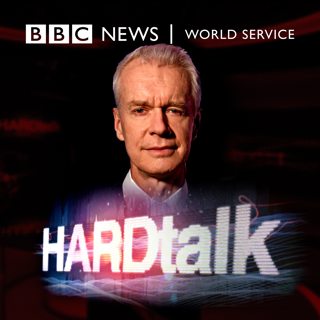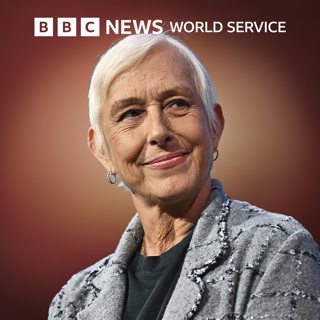
FW de Klerk
In a programme first broadcast in 2012, Stephen Sackur speaks to FW de Klerk, South Africa's last apartheid-era leader and a co-recipient of the Nobel Peace Prize with Nelson Mandela.Photo: Former South African President FW de Klerk in Cape Town, South Africa, 2020 (Credit: Reuters)
18 Apr 201223min

Paul Conroy - Photographer
From Syria, to Sri Lanka, to Russia, there are journalists ready to put themselves in harm's way to shine a light on some of the darkest corners of conflict, crime and corruption. What makes them do it? And what difference do they make? Stephen Sackur speaks to British photo journalist Paul Conroy who was wounded in the Syrian army's bombardment of the city of Homs last February which killed his Sunday Times colleague Marie Colvin. When, if ever, is telling the story worth risking your life?
16 Apr 201223min

Ali Dizaei - London Metropolitan Police Superintendent
Stephen Sackur speaks to perhaps the UK's most controversial police officer, a commander in London's Metropolitan Police and a convicted criminal. Ali Dizaei was born in Iran, studied law in London and became a high-flying spokesman for ethnic minority police officers in a London force dogged by accusations of racism. Ali Dizaei portrays himself as a victim; the courts decided he was a rogue cop. What does his rise and fall say about British policing?
11 Apr 201223min

Michael Frayn - Writer
Stephen Sackur speaks to one of Britain's finest writing talents, whose creativity defies a simple label. Yes, Michael Frayn is a renowned playwright whose work has ranged from high farce to cerebral intensity. But he's also an acclaimed novelist and an accomplished translator from the Russian of Chekhov and Tolstoy. Throughout his writing career he's mixed high seriousness with a wicked sense of the absurd. Is laughter an essential tool for the serious writer?
9 Apr 201223min

Hamid Al-Bayati - Iraqi Ambassador to the UN
Should Iraq be doing more to end the bloodshed on its doorstep or does it have its own vested interest in keeping Syria's president Assad in power? While president Nouri Al-Maliki faces criticism for his stance on Syria and his closeness to Iran, the country remains gripped by a rise in sectarian violence. Hamid Al-Bayati represents Iraq at the United Nations. Tim Franks asks him just how much influence Iran has on Iraq's foreign policy.
6 Apr 201223min

Juergen Stark - Former member, Executive Board of the European Central Bank
Lake Como in northern Italy is the venue for an economic conference hosted by the Ambrosetti Forum. The economic policy-makers gathered here are fervently hoping that the worst of Europe's sovereign debt crisis is over - but is it? Stephen Sackur speaks to Juergen Stark who was - until his shock resignation in 2011 - a key figure on the board of the European Central Bank. He quit because he disagreed with the ECB's crisis management. Much has changed in the last few months, but has the eurozone really been saved?
3 Apr 201223min

Sir Alan Ayckbourn - British Playwright
Alan Ayckbourn is often described as the most performed playwright alive in the world. A revival of his play Absent Friends has opened in London's West End. And a new play - his 76th - premieres this summer. After more than 50 years of writing and directing, what is it about Alan Ayckbourn and his portrayal of relationships in the English suburbs that can still fill theatres around the world?
2 Apr 201223min

Nabeel Rajab - President of the Bahrain Centre for Human Rights
A year ago revolution was in the air in the Gulf Kingdom of Bahrain - what about now? After months of violence which killed dozens of protestors, the Bahraini king commissioned an independent inquiry - then he promised to implement sweeping reforms. Stephen Sackur speaks to Nabeel Rajab - one of Bahrain's most outspoken human rights activists. Has this strategically vital Gulf monarchy successfully reformed itself from within?
30 Mar 201223min






















